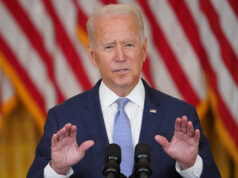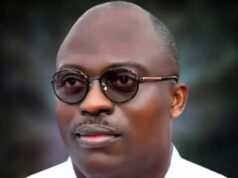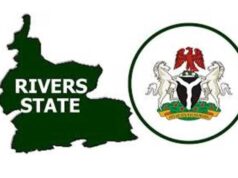Vladimir Putin is to be sworn in for a fourth term as president of Russia on Monday after winning the election in March.
He has been in power for 18 years, whether as president or prime minister, and opponents have likened his tenure to the reign of a tsar, or emperor.
Riot police confronted protesters against his rule in Moscow and other Russian cities on Saturday.
More than 1,000 arrests are said to have been made in 19 cities.
The inauguration at the Kremlin in Moscow is likely to be more low-key than in 2012, AFP news agency reports.
Mr Putin, 65, is expected to meet only volunteers who took part in his election campaign, the agency says.
The biggest complaint among Russians surveyed by the Levada Centre, a major sociological research body, was that Mr Putin had failed to reduce the wealth gap (the top complaint for 45% of respondents).
Another big complaint (for 39%) was the failure to refund Russians who lost savings during market reforms.
Mr Putin’s most praiseworthy achievement was restoring Russia’s world status as a great power (47%), according to the poll. It was conducted last month among 1,600 Russians in 136 towns and cities.
Compared with a similar poll in 2015, there was a doubling of complaints that Mr Putin had failed to raise wages, pensions and benefits.
Nearly half of the reported 1,000 arrests on Saturday were in Moscow.
Mr Putin was re-elected president with more than 76% of the vote, his best ever election performance, but widespread irregularities were reported by some international observers. Allegations of ballot-rigging had dogged previous elections too.
The country’s best-known opposition leader, Alexei Navalny, was barred from standing against Mr Putin, on grounds of a conviction for embezzlement which he denies and alleges was politically motivated.
Mr Navalny was arrested briefly as he tried to join Saturday’s unauthorized protest rally in Moscow under the slogan “He’s not our tsar”.
Domestic opponents accuse Mr Putin of undermining democracy in Russia – a policy dubbed “managed democracy” – to keep genuine opposition parties out of parliament and ensure that he and his allies retain power indefinitely.
Spy turned president
1952: Born 7 October in Leningrad (now St Petersburg), Russia’s second city, studies law and joins KGB secret police, serving as spy in communist East Germany
1990s: After serving as top aide to the mayor of St Petersburg, enters Boris Yeltsin’s Kremlin in 1997, where he is made chief of the FSB (the KGB’s successor)
1999: Appointed prime minister, becomes acting president upon Yeltsin’s resignation
2000: Elected president and serves two four-year terms
2008: Barred from running for a third consecutive term, stuns analysts by returning to post of prime minister while his protege Dmitry Medvedev becomes president
2012: Re-elected president and for term of six years, under new law
2018: Re-elected for fourth term
Read more on BBC




